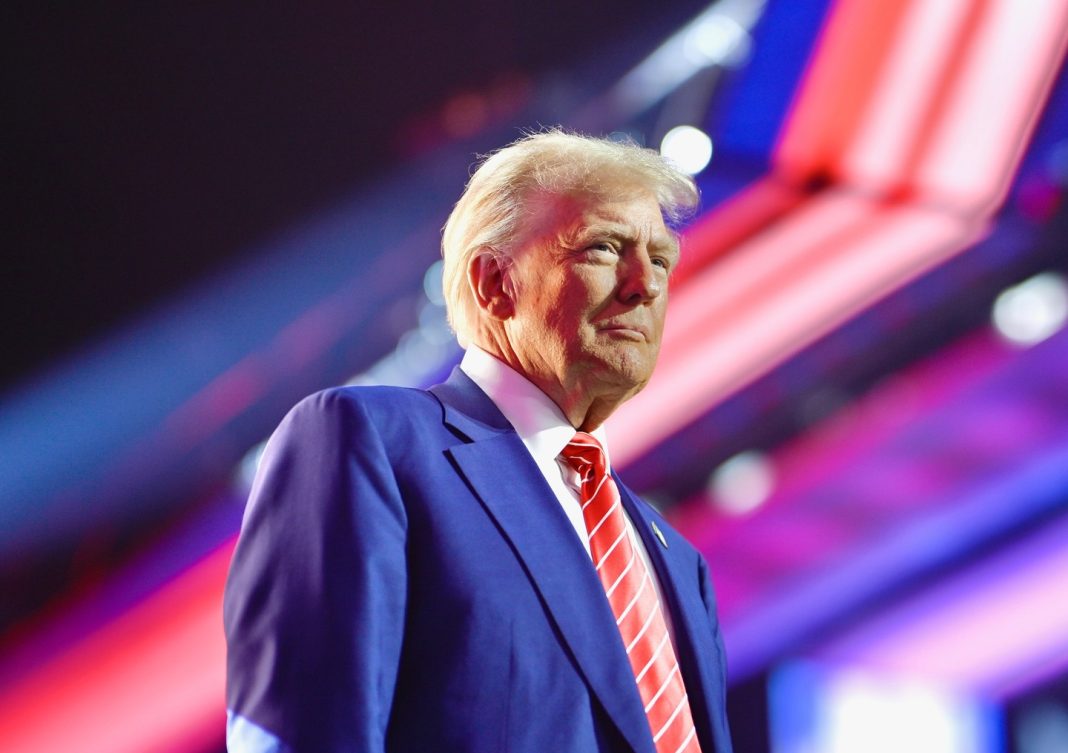
Washington, June 13: Just hours before Israel launched strikes on Iran early Friday, President Donald Trump was still holding onto tattered threads of hope that a long-simmering dispute over Tehran’s nuclear programme could be resolved without military action.

But with the Israeli military operation called “Rising Lion” now underway — something Israeli Prime Minister Benjamin Netanyahu says will go on for “as many days as it takes” — Trump will be tested anew on his ability to make good on a campaign promise to disentangle the US from foreign conflicts.
The administration’s immediate reaction to the Israeli assault came not from Trump, but from Secretary of State Marco Rubio, who is doubling as Trump’s national security adviser. He made clear that the US was “not involved” and that the administration’s central concern was protecting US forces in the region.
“Israel advised us that they believe this action was necessary for its self-defence,” Rubio said in a statement. “President Trump and the Administration have taken all necessary steps to protect our forces and remain in close contact with our regional partners. Let me be clear: Iran should not target US interests or personnel.”
As Israel stepped up planning for strikes in recent weeks, however, Iran, had signaled that the United States would be held responsible in the event of an Israeli attack. The warning was issued by Iranian Foreign Minister Abbas Araghchi even as he engaged in talks with Trump special envoy Steve Witkoff over Tehran’s rapidly advancing nuclear programme.
On Thursday, just hours before the strikes, Trump made the case that there was still time for diplomacy — but it was running out. The White House had even planned to dispatch Witkoff to Oman on Sunday for the next round of talks with Araghchi. It wasn’t immediately clear how the strikes would affect plans for those discussions.
Trump is set to meet with his National Security Council in the Situation Room on Friday to discuss the tricky path ahead.
Sen Tim Kaine, D-Va., offered rare words of Democratic praise for the Trump administration after the attack “for prioritising diplomacy” and “refraining from participating in tonight’s actions.” But he also expressed deep concern about what the Israeli strikes could mean for U.S. personnel in the region.
Iranian officials made clear that they intended to retaliate with decisive action after the Israeli strikes targeted Iran’s main enrichment facility in Natanz and the country’s ballistic missile programme, as well as top nuclear scientists and officials.
“I cannot understand why Israel would launch a preemptive strike at this juncture, knowing high level diplomatic discussions between the United States and Iran are scheduled for this weekend,” Kaine said.
Senate Majority Leader John Thune, R-S D, said the US Senate “stands ready to work with President Trump and with our allies in Israel to restore peace in the region and, first and foremost, to defend the American people from Iranian aggression, especially our troops and civilians serving overseas.”
Trump in the hours before the attack still appeared hopeful that there would be more time for diplomacy.
The president, in an exchange with reporters, again urged Iran to negotiate a deal. He warned that a “massive conflict” could occur in the Middle East without it.
He later took to social media to emphasise that his “entire Administration has been directed to negotiate with Iran.”
As long as there was a chance for an agreement, Trump said of Israel, “I don’t want them going in because I think it would blow it.”
But it was clear to the administration that Israel was edging toward taking military action against Iran. The State Department on Wednesday directed a voluntary evacuation of nonessential personnel and their families from some U.S. diplomatic outposts in the Middle East.
“I don’t want to be the one that didn’t give any warning, and missiles are flying into their buildings. It’s possible. So I had to do it,” Trump explained.
Before Israel launched the strikes, some of Trump’s strongest supporters were raising concerns about what another expansive conflict in the Mideast could mean for the Republican president who ran on a promise to quickly end the brutal wars in Gaza and Ukraine.
Trump has struggled to find an endgame to either of those conflicts and to make good on two of his biggest foreign policy campaign promises.
And after criticizing President Joe Biden during last year’s campaign for preventing Israel from carrying out strikes on Iranian nuclear sites, Trump found himself making the case to the Israelis to give diplomacy a chance.
The push by the Trump administration to persuade Tehran to give up its nuclear programme came after the US and other world powers in 2015 reached a long-term, comprehensive nuclear agreement that limited Tehran’s enrichment of uranium in exchange for the lifting of economic sanctions.
But Trump unilaterally withdrew the US from the Obama-administration brokered agreement in 2018, calling it the “worst deal ever.”
The way forward is even more clouded now.
“No issue currently divides the right as much as foreign policy,” Charlie Kirk, the founder of Turning Point USA and an ally of the Trump White House, posted on X Thursday. “I’m very concerned based on (everything) I’ve seen in the grassroots the last few months that this will cause a massive schism in MAGA and potentially disrupt our momentum and our insanely successful Presidency.”
Jack Posobiec, another prominent Trump supporter, warned a “direct strike on Iran right now would disastrously split the Trump coalition.”
“Trump smartly ran against starting new wars, this is what the swing states voted for — the midterms are not far and Congress’ majority is already razor-thin,” Posobiec added in a posting on X.
Rosemary Kelanic, director of the Middle East programme at Defence Priorities, said the job ahead for Trump and his team is to protect US forces who are highly vulnerable to Iranian retaliation.

“Israel’s strike on Iran must not become the United States’ war,” Kelanic said. “The US public overwhelmingly opposes another military engagement in the Middle East for good reason — an open-ended military campaign in Iran would risk repeating the catastrophic mistakes of the 2003 war in Iraq, which inadvertently strengthened Tehran’s influence there.” (AP)





